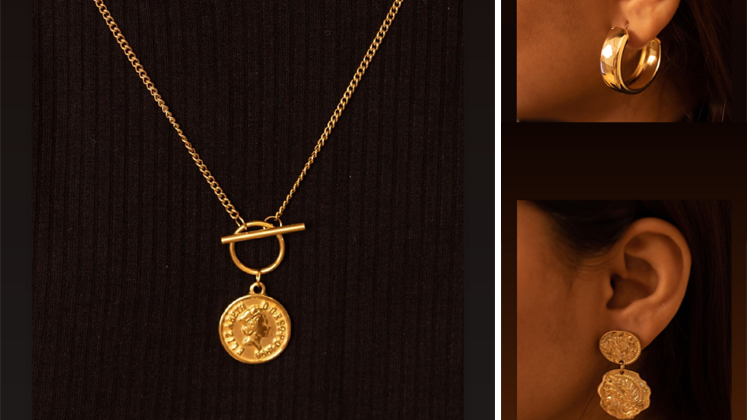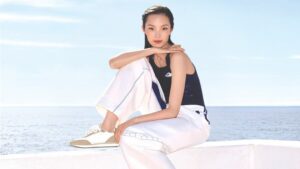With a goal to bring international trends in footwear and accessories to the heart of Bangladesh, Bariq began its journey two years ago, with an emphasis on locally made products by Bangladeshi craftsmen.
Owing to its product quality and affordable pricing strategy, the brand has been quick to gain not only local, but also international eyeballs, further strengthening its position in the market.
Brainchild of Badria Anis, who is a Pharmaceutical Chemistry Graduate from the University of Toronto, it all began when she decided to move back to Bangladesh after spending a few years working in the pharma industry in Canada, to join her family business and the rest is history.
Her love for fashion drew her towards the field and she opted for a course in Footwear Design from Malaysia.
“We exist to ensure that our consumers may always discover the fashion they desire, something they genuinely like,” said Badria Anis, Creative Head & Founder of Bariq, to Apparel Resources (AR) in an exclusive interview adding, “The client is at the core of everything we do, and we are always coming up with new methods to help them find the trends that are just right for them. Our goods are designed to meet international standards.”
PRODUCT ASSORTMENT AND PRICING
Bariq caters to women aged between 20 and 40 years and offers one-of-a-kind assortment of footwear and accessories ranging from jewellery, sunglasses, jewellery boxes to purses amongst others.
Its wedding collection, which offers a range of footwear featuring chunky rhinestones on satin silhouettes on heels and hand beaded embroidery on leather and fabric, is priced onwards of BDT 3,500++.
Its mid line features a fusion of glamour and comfort, and offers medium-height heels or flats with a single line of rhinestone detailing over leather and fabric. This line is priced between BDT 2,500 and BDT 3,600.
To meet the demand for casual, comfortable everyday wear, the brand additionally offers a casual line which is priced between BDT 1,800 and BDT 2,600.
The brand’s bestselling styles include its footwear made using cellulose transparent uppers with rhinestone detailing, and its nude coloured leather heels accentuated using stones.
Bariq essentially means ‘glitter’ in Arabic. Crediting their inspiration for the same, the brand decided to add an element of rhinestones as a design statement in each pair of footwear it makes, in order to stand out from other brands available in the market. It offers sizes from 35 to 41.
“We have one rule, we don’t produce more than a certain amount of products, and when there’s a huge demand for a particular style, we repeat the pair in a limited manner so as to give other designs a chance as well,” Badria explained. She then added, “When there’s a seasonal collection launch, we have a target of the number of pairs to produce. If demand is super high, we do repeat but as mentioned we discontinue a design once it has been in the market for a few months.”
Bariq’s collections are season based – catering to the winter season, wedding season, spring season, summer season and fall season. Additionally, two of its biggest seasons are the two Eid seasons – wherein most sales are done.
Also Read: Tinting Fashion With Nature – Tintory’s Bold Take On Sustainability
MANUFACTURING AND SOURCING
Bariq manufactures all its designs in-house and does not outsource any of its production elsewhere. The only thing it outsources are its raw materials such as the rhinestones it uses, and most of its faux leather material.
“We travel once a year to find new vendors for our raw materials and then work with our collection. Right now we are trying to develop rhinestone uppers in Bangladesh as well,” Badria explained, adding, “The leather we use on the outside of our shoes is locally produced, while materials such as rhinestones and faux leather are usually outsourced. The latter is mostly sourced from Dubai and Malaysia.”
Founded in 2019, Bariq started out with only 4 people and has grown to encompass a team of 20 people today, owing to an increase in product demand. Its main manufacturing unit is located in Narayanganj in Bangladesh.
“Islampur is a very rich market for fabric sourcing. We usually go to the old town region to procure hardware for our shoes,” Badria said adding, “We also work with tanneries located in the old town region for our local leather sourcing, apart from outsourcing them from Malaysia, Dubai and China.”
THE BANGLADESHI CONSUMER
The demand for locally made products is on the rise in Bangladesh. This has increased further owing to the pandemic when consumers were forced to explore homegrown options due to supply chains being cut off because of nationwide lockdowns and delivery delays.
“I feel that earlier, there weren’t too many options available in the market for the buyers. Now that there are a slew of local brands, consumers are automatically connecting to them,” Badria highlighted adding, “Social media has further blurred boundaries and brought the fashion world closer together, exposing people to all kinds of local trends. Because of this, consumers are being very conscious of what they purchase and this is fuelling the shopping market in Bangladesh.”
Badria believes that customers today mostly look for comfort and of course, design is a huge factor. Bariq projects itself as a brand that brings the latest trendy designs to the table.
“The designs should be a reflection of the current trends in the market. This is to satisfy the clients so that they can buy directly from our store instead of purchasing from abroad,” Badria stated.
THE SUSTAINABILITY ASPECT
“We, as a brand, believe in zero wastage in terms of cutting of the leather we use. Furthermore, we always try to produce our shoes in accordance with a forecast, to ensure that we do not overproduce.” Badria explained, adding, “We study the market and demand, so that we don’t have much of a backlog.”
The brand does not use plastic in its packaging, and tries to work ethically keeping all the sustainable processes in mind, but at the same time, it ensures on-time payment of salary to its employees and karigars, on-time processing of orders and deliveries.
STEPS TAKEN TO STAY RELEVANT DURING THE PANDEMIC
The pandemic brought a big blow to the fashion and textile industry, with lockdowns directly affecting sales. Forced store closures and lack of physical contact, underlined the urgency of a new model for retail, and saw the industry reaching out via digital channels.
Commenting on the same, Badria said, “We understood quite early on that most of the selling would be done through an online platform. At that time, since we had just started as the pandemic broke, we didn’t have a website, so it was the perfect time to launch a website.”
Bariq does a lot of collaborations with fashion influencers to showcase how their product looks once worn since a lot of people are unable to come to stores.
The brand also started the practice of sending a few extra pairs of footwear to its clients (one size up and one size down) upon delivery, so that in case the ordered size does not fit the client, they can immediately exchange it with their desired size without the hassle of sending the product back for return which requires time and extra logistics.
Adopting and implementing a complex marketing plan has resulted in a phenomenon that has lasted to this day.
“We tend to use social media for our marketing, and use fashion influencers to create content with our footwear. We shoot campaigns for each season to showcase our products. Since we offer bags and accessories also, we try to opt for a lifestyle-centric theme in our shoots,” Badria expounded.
Bariq’s head office and warehouse are located in Dhaka, Bangladesh and are currently available for purchase only online, via its website and its Facebook and Instagram pages.
“We stick our products in our warehouse which is around our head office in Dhaka. It is easier to pack our orders from there,” Badria explained.
As more and more people get vaccinated in Bangladesh, Bariq is in the process of renovating its offline store, to be ready in time for the new normal.
As of now, the brand does not intend to link up with any local e-commerce platforms available in Bangladesh, and wants to instead strengthen its Direct-to-Consumer model.









